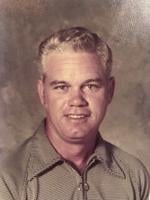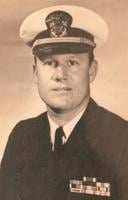When Dallas News editorial writer Wayne Gard published a biography of Texas outlaw Sam Bass in 1936 it was certainly a source of pride for Gard but also his cousin, Athens resident Mrs. Harry Murchison. He would go on to write more books on Texas history but his first was this biography about the 19th century bandit who had become a Texan folk hero.
According to the June 25, 1926 Athens Weekly Review article, the Bass biography was to come out the next month. The book was described by the publisher as a biography of “the famous train robber of the seventies” – meaning of course the 1870s. Also, Sam Bass was known for his “exploits [that] ranged from the Rio Grande to the Black Hills.”
Sam Bass was born in 1851 in Indiana and when his parents died when he was 13 a few years later he headed West where he tried various jobs. Then in 1875 he and a friend drove a herd of cattle owned by San Antonio area ranchers to Nebraska but once they arrived unfortunately they lost all their money (and the ranchers’ funds) by gambling in the cow town. (It’s not clear how the ranchers responded with the loss.)
After that since Bass and his friend were broke they decided to form a gang to rob stage coaches and trains. They had their first success in 1877 when they robbed the United Pacific Railroad gold train from San Francisco, and netted over $80,000. This success made Bass strike out on his own and he returned to Texas to form a new gang. As the reporter of the Review article put it: “Back in his old haunts, he [Bass] set Texas agog by robbing four trains in two months without getting a stretch.”
By 1878 their robbery spree near Dallas had not netted them much money but they naturally attracted the attention of local law enforcement. First it was the Pinkerton National Detective Agency and then the Texas Rangers. A special Rangers team was formed under the command of Captain Junius Peak.
Then as the Bass Gang avoided capture, the Rangers figured they needed an informant and so they focused on gang member Jim Murphy. Their tactic was to send a message to Jim, telling him that if he wanted medical attention for his seriously ill father then he should meet with them. Jim agreed to go along and then related that Bass gang’s next job was to rob a bank in Round Rock.
When Bass and his gang arrived in Round Rock on July 19, 1878 they scouted out the town but as they entered a store a local lawman tried to question them. Somehow in the ensuing gunfight the lawman was killed along with a gang member. Bass was wounded but he escaped.
There was a problem however when they had to identify the dead bandit since no one in town knew any of the gang members.
Later a posse found a mortally wounded Bass outside town lying in a pasture and calling out to them as they passed: “I’m over here – I’m Sam Bass, the one you’re looking for!” Bass died the next day and was buried in a Round Rock cemetery under a stone monument that was soon damaged by souvenir hunters chipping away parts of the stone. Eventually what was left of the monument was put on display at a local library in Round Rock.
In covering the upcoming biography the Review reporter described Bass: “Today he is a legendary Robin Hood, the hero of campfire tales and of a popular cowboy song.” The volume was described by the publisher as “an authentic, breathless biography.”
Born in 1899, Wayne Gard wrote for various publications in college and then graduate school. In 1933 he joined the staff of the Dallas News as an editorial writer and remained in that position until he retired in 1963.
Yet aside from his work on the Dallas paper he also published numerous books on Texas history as well as various articles in other newspapers and magazines. His 1936 Bass bio was the first of his history books, a series that included titles on such as “The Chisholm Trail,” “Rawhide,” The Great Buffalo Hunt,” and “Frontier Justice” among others. Wayne Gard passed away in Dallas in 1986 and his books are still available online.












Commented
Sorry, there are no recent results for popular commented articles.